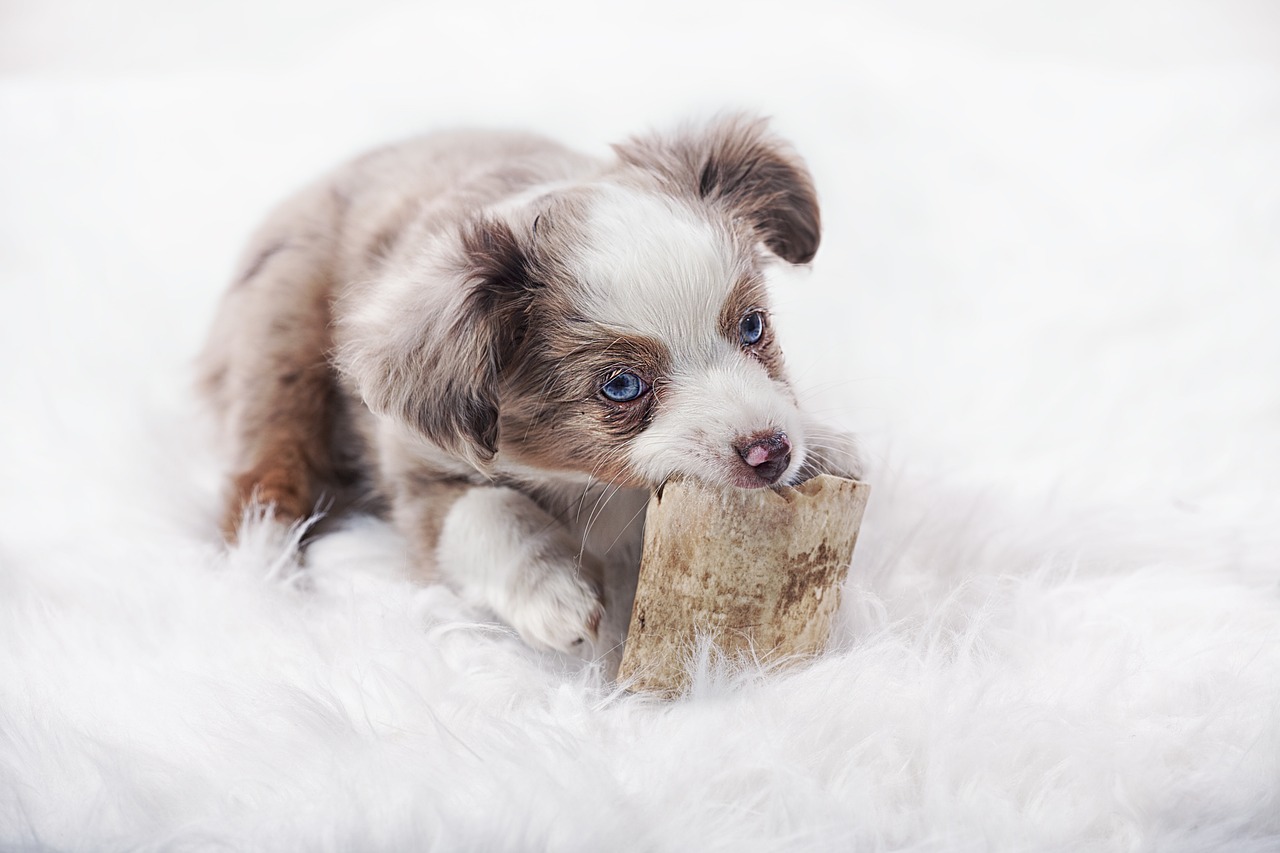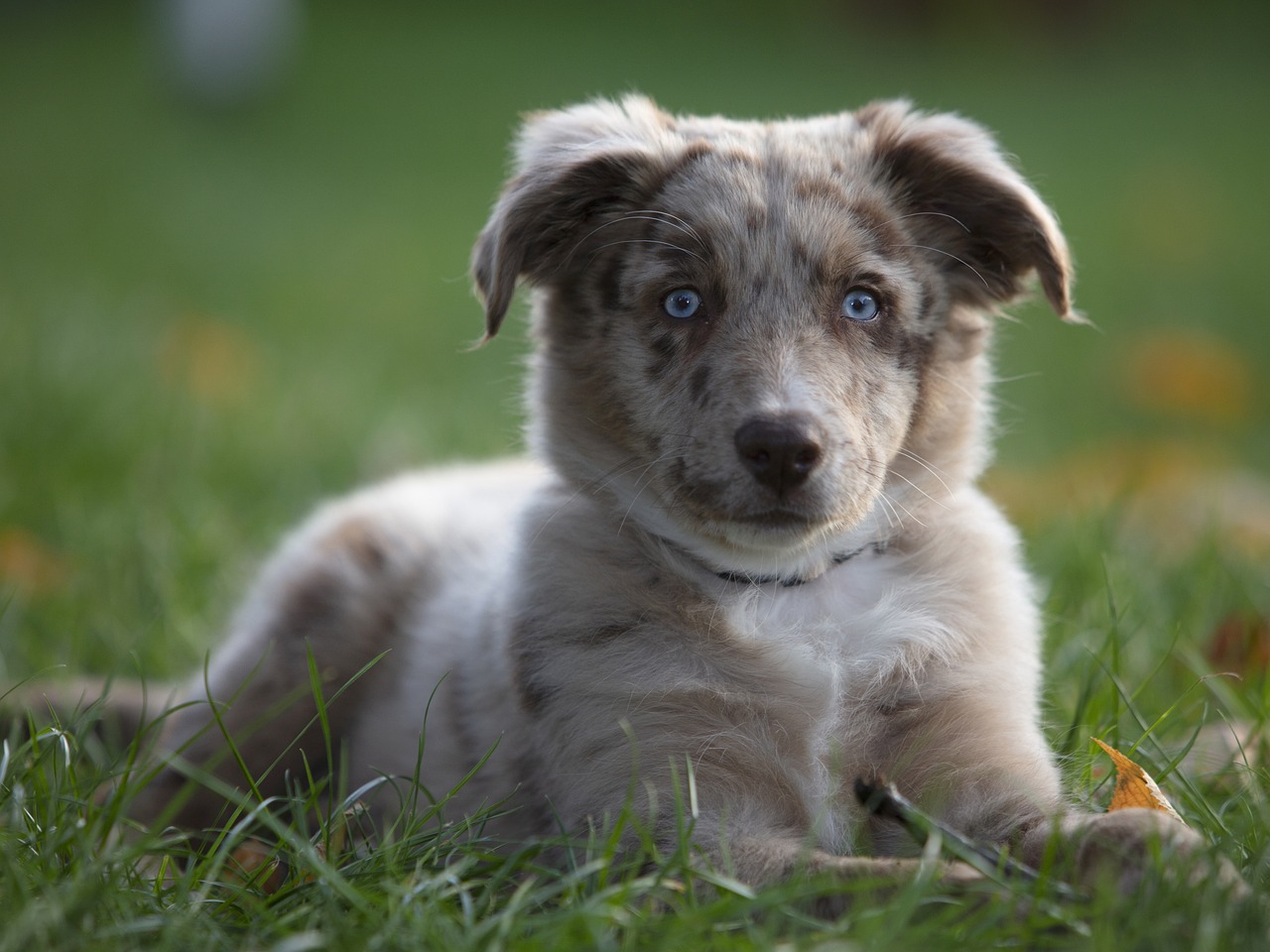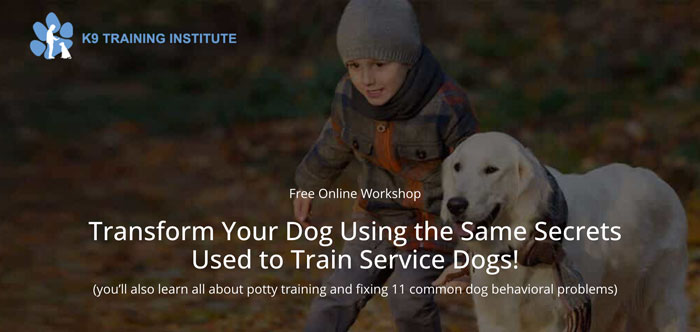Australian Shepherds are energetic, intelligent, and versatile dogs, often known for their herding prowess and striking appearance. Properly socializing an Australian Shepherd puppy is paramount to ensuring they grow up to be well-adjusted, confident adults.
The Right Ways to Socialize an Australian Shepherd Puppy
 Here are the recommended steps and strategies to successfully socialize an Australian Shepherd puppy:
Here are the recommended steps and strategies to successfully socialize an Australian Shepherd puppy:
-
Start Early:
- Begin the socialization process as soon as you bring your Australian Shepherd puppy home, typically around 8-10 weeks of age. The most crucial window for socialization is between 3 to 14 weeks.
-
Gradual Exposures:
- Slowly introduce the Australian Shepherd puppy to various environments, sounds, and experiences. Rushing or overwhelming them can lead to negative associations.
-
Positive Reinforcement:
- Always reward the Australian Shepherd puppy with treats, praise, or toys when they react positively to a new experience. This helps in building positive associations.
-
Human Interaction:
- Expose the Australian Shepherd puppy to people of different ages, sizes, genders, and ethnicities. Ensure these encounters are gentle and positive, as these early interactions can shape their perception of people throughout their life.
-
Safe Doggy Playdates:
- Organize controlled play sessions with other well-behaved, vaccinated dogs. This will help the Australian Shepherd puppy learn appropriate play behavior and canine social cues.
-
Introduce Varied Environments:
- Take your Australian Shepherd puppy to different settings like parks, busy streets, outdoor cafés, and beaches. This helps them adapt to various situations and reduces the chances of them being skittish in unfamiliar environments.
-
Familiarize with Everyday Noises:
- Expose your Australian Shepherd puppy to common sounds like doorbells, vacuum cleaners, car horns, and children playing. Play these sounds at a low volume initially, and gradually increase as the puppy becomes accustomed.
-
Handling and Grooming:
- Regularly handle the paws, ears, and mouth of the Australian Shepherd puppy, making each touch a positive experience. This will make future grooming and vet visits more manageable.
-
Car Rides:
- Introduce the Australian Shepherd puppy to car rides. Start with short trips before progressing to longer durations, ensuring they’re secure and comfortable throughout.
-
Respect Their Limits:
- Pay attention to the Australian Shepherd puppy’s body language. If they show signs of discomfort or fear, it’s vital to recognize it and give them the space they need. Forcing them can lead to negative associations.
-
Puppy Socialization Classes:
- Enrolling your Australian Shepherd puppy in a puppy class is an excellent way for them to interact with other dogs and people in a controlled environment, under the guidance of a professional.
-
Consistency is Key:
- Socialization is not a one-time event. It’s an ongoing process. Regularly exposing your Australian Shepherd puppy to varied experiences will help reinforce positive behaviors and reactions.
-
Introduce Home Equipment:
- Familiarize your Australian Shepherd puppy with equipment you’ll frequently use, such as leashes, collars, and harnesses, ensuring each introduction is calm and positive.
-
Seek Expert Advice:
- If you’re unsure about any part of the socialization process or face challenges, consult with a professional dog trainer or behaviorist for guidance and support.
-
Enroll in a Puppy Obedience Training Program:
- Beyond just socialization, behavioral training is crucial for an intelligent breed like the Australian Shepherd. An obedience program will equip you with the tools to guide your puppy in becoming a well-mannered adult. For comprehensive training, consider enrolling in SpiritDog’s Ultimate Puppy Training Program or K9 Training Institute’s Dog Masterclass.
The Wrong Ways to Socialize an Australian Shepherd Puppy
 When it comes to socializing an Australian Shepherd Puppy, certain missteps can inadvertently instill fear or aggressive behaviors in your young dog. Australian Shepherds are a highly intelligent and energetic breed that thrives on proper training and social experiences. Avoiding the following pitfalls can help ensure your Australian Shepherd Puppy matures into a well-adjusted and sociable adult.
When it comes to socializing an Australian Shepherd Puppy, certain missteps can inadvertently instill fear or aggressive behaviors in your young dog. Australian Shepherds are a highly intelligent and energetic breed that thrives on proper training and social experiences. Avoiding the following pitfalls can help ensure your Australian Shepherd Puppy matures into a well-adjusted and sociable adult.
-
Delaying the Process:
- Waiting too long to begin socialization can be detrimental. The critical window for socializing an Australian Shepherd Puppy is between 3 to 14 weeks. Missing this period may lead to increased fear, reactivity, or aggression in unfamiliar situations.
-
Forcing Interactions:
- Pushing the Australian Shepherd Puppy into situations they find uncomfortable can lead to negative associations. For example, if they seem scared of a new experience, forcing them to face it can cement that fear.
-
Neglecting Human Interaction:
- Only exposing the Australian Shepherd Puppy to other dogs and neglecting interactions with diverse humans can result in an adult dog that’s wary or fearful of people.
-
Overwhelming Environments:
- Bringing an Australian Shepherd Puppy into overly noisy or chaotic situations can be too much for them to handle, potentially causing anxiety and stress.
-
Negative Reinforcement:
- Using punishments or negative reinforcements during socialization can create adverse associations with new experiences. This approach might make the Australian Shepherd Puppy wary of future encounters.
-
Isolating from Other Dogs:
- Not allowing the Australian Shepherd Puppy to interact with well-behaved, vaccinated dogs can hinder their ability to understand canine social cues and play behaviors.
-
Ignoring Bad Behavior:
- Letting the Australian Shepherd Puppy get away with aggressive or overly timid behavior during social situations without gentle correction can lead to the reinforcement of undesired behaviors.
-
Neglecting Different Environments:
- If you only expose your Australian Shepherd Puppy to one type of environment, such as indoors or in your backyard, they may become anxious or fearful in new places.
-
Avoiding Everyday Noises:
- Shielding the Australian Shepherd Puppy entirely from everyday sounds can result in a dog that’s skittish or scared when confronted with common noises later in life.
-
Skipping Puppy Classes:
- Failing to enroll the Australian Shepherd Puppy in socialization or puppy classes denies them a controlled environment to learn and interact, potentially leading to gaps in their social development.
-
Not Monitoring Play:
- Letting the Australian Shepherd Puppy play unsupervised can result in them picking up bad habits or getting bullied or injured by other dogs.
-
Using Only Dog Parks for Socialization:
- Relying solely on dog parks for socializing Australian Shepherd Puppies can expose them to untrained or aggressive dogs, leading to bad experiences or learned aggressive behaviors.
-
Overprotecting:
- Being overly protective and not allowing the Australian Shepherd Puppy to explore and experience minor challenges can lead to a lack of confidence in unfamiliar situations.
-
Ignoring Warning Signs:
- Failing to recognize signs of stress, fear, or discomfort in the Australian Shepherd Puppy during socialization can result in traumatic experiences that may have long-term effects.
-
Choosing the Wrong Training Program:
- Opting for outdated or punishment-based training methods can be detrimental to the Australian Shepherd Puppy’s development and trust.
Consider Online Dog Training for Your Australian Shepherd Puppy
Our 2 favorite online courses are:
1. SpiritDog’s “Perfect Obedience” Course
The Perfect Dog Obedience Bundle is an online dog training program designed to help dog owners achieve well-behaved pets. The comprehensive course covers basic obedience, and loose leash walking, and includes bonus mini-courses on training habits and rewards, stopping jumping, and separation anxiety solutions. With lifetime access to expert trainers for personalized feedback and a 60-day money-back guarantee, this course aims to provide effective, accessible training for a variety of dog behavior issues.
2. K9 Training Institute’s “Dog Masterclass”
More than just an obedience course, this more comprehensive training course tackles any behavior problem you might face with your dog.
In conclusion, while the intention behind socializing an Australian Shepherd Puppy is always positive, it’s essential to be aware of common missteps. Avoiding these pitfalls and focusing on positive, varied experiences will pave the way for your Australian Shepherd Puppy to grow into a confident and sociable adult.


 Toledo, United States.
Toledo, United States.